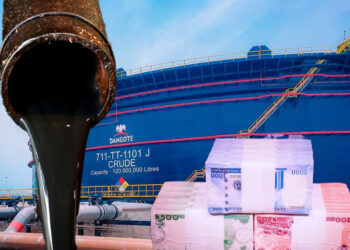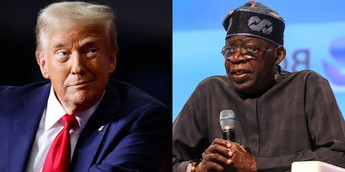Daar Communications Plc, owners of African Independent Television (AIT) and Ray Power Radio, said on Saturday that despite a 25 per cent growth in its revenue in 2018, its balance sheet still ended in a deficit at the end of the financial year.
Chairman of the Group, Raymond Dokpesi Jnr., told shareholders at the broadcast firm’s 10th and 11th Annual General Meeting in Abuja that its revenue grew from about N3.712 billion in 2017 to a new level of N4.637 billion in the 2018 financial year.
However, Mr Dokpesi said the about N925 million increase in revenue during the year did not translate into profitability, as the company still recorded a loss of about N2.169 billion after settling its tax obligations to the Nigerian government.

The company also reported operating losses of about N482 million in 2017, showing an increase of 350 per cent when compared the figure this year.
He linked the loss on the company’s adoption of the International Financial Reporting Standard (IFRS) in its accounting operations
The new policy, the Daar Group Chairman said, differs sharply from the previous accounting model in use by most companies in Nigeria before now.
“Amidst of operating challenges, your company recorded gross earnings of N3.712 billion in 2017 against the 2016 earnings of N3.733 billion, representing a marginal decline of 0.56 per cent revenue.
“Conversely, the earnings of 2018 increased to N4.637 billion, representing 25 per cent increase over 2017 earnings,’’ Mr Dokpesi said.
To ensure the company complied with the dictates of the IFRS -15 models of accounting in its operation, the chairman said the board resolved to review all her revenue contracts to enable it make appropriate provisions for all delinquent accounts in line with the new accounting standard.
Also, he said, about N1.3 billion was provided for in the 2018 financials for possible doubtful debt, assuring shareholders that every action necessary, including legal option, was being considered to help recover its debts.
He also blamed the loss on the ever escalating operating cost, particularly as it relates to energy, considering that the company depends heavily on the use of diesel to sustain its operations.
In addition, the Daar Group Chairman equally blamed the country’s high foreign exchange regime in its acquisition of broadcast equipment.
Despite these challenges, Mr Dokpesi assured the shareholders that the board remained committed to ensuring a better future, following an on-going restructure in the group.
“As part of the repositioning programme of the company, we have acquired the latest modern studios and other broadcast infrastructure that the industry can boast of.
“We are also integrating our operations with the most robust software in order to fully automate our operations to cope with modern broadcasting anywhere in the globe.
“The company has also signed on various content production agreements with reputable producers for the production of high-end content necessary to increase its audiences and market potentials.
“These investments will no doubt position the company for cost effective management , increased viewership / listenership and adequate rating for increased revenue generation,’’ the chairman said.
At the AGM, shareholders were divided on the outcome of the financial statements. While some expressed mix-feelings , others like Muktar Muhtar applauded the initiatives of the board and urged others to give the management and board more time to make the firm profitable.








